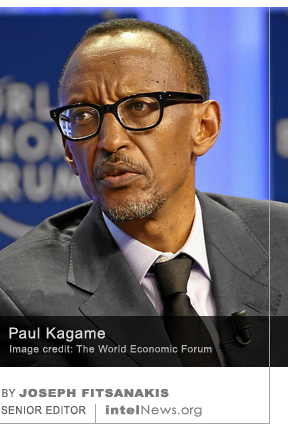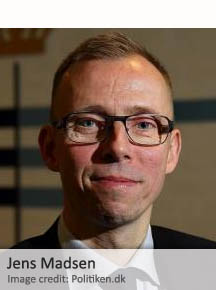Canadian parliament pressures government to investigate Chinese election meddling
March 6, 2023 1 Comment
 A KEY COMMITTEE IN the Parliament of Canada passed a motion late last week that calls on the government to investigate allegations of foreign interference in the country’s general elections. Last Thursday’s vote by the Standing Committee on Procedure and House Affairs came soon after its members attended closed-door testimony by senior intelligence officials, which touched on various topics relating to the national security of Canada.
A KEY COMMITTEE IN the Parliament of Canada passed a motion late last week that calls on the government to investigate allegations of foreign interference in the country’s general elections. Last Thursday’s vote by the Standing Committee on Procedure and House Affairs came soon after its members attended closed-door testimony by senior intelligence officials, which touched on various topics relating to the national security of Canada.
The motion specifically mentioned recent testimony by David Vigneault, Director of the Canadian Security Intelligence Service (CSIS), which is Canada’s primary national intelligence agency. Vigneault told the Procedure and House Affairs Committee that there had been no major efforts by foreign powers to interfere in Canadian elections in 2019 and 2021. As a result, the integrity of the election processes and results had not been compromised, Vigneault said.
However, the CSIS director added that an investigation had been launched into allegations that China carried out concerted efforts to meddle in these elections. Vigneault was referring to a series of media reports in the past year, which have alleged that China employed its embassy in Ottawa, as well as its network of consulates across China, to carry out a campaign of interference into Canadian political life, and election campaigns in particular. Much of the momentum behind these allegations comes from the opposition Conservative Party of Canada. Some senior Conservative officials have explained their electoral defeat by the ruling Liberal Party as a result of Chinese interference.
All five Liberal Party lawmakers in the Procedure and House Affairs Committee voted against the motion to launch a broad public inquiry into alleged Chinese electoral interference. However, they were outnumbered by the six opposition lawmakers, who united in voting for the motion. The motion is not binding. However, as a report in the Reuters news agency notes, it places pressure on the government of Prime Minister Justin Trudeau to address these concerns. Trudeau has acknowledged that China did try to interfere in the Canadian general elections, but has insisted that the election results were not affected by these efforts.
► Author: Joseph Fitsanakis | Date: 06 March 2023 | Permalink

 The manipulation of social media by foreign governments aiming to sow division in Canada ahead of the country’s federal election in October is growing, according to the country’s signals intelligence agency. In a report published Monday, the Communications Security Establishment (CSE), Canada’s national communications interception agency, warns that election meddling by foreign powers is already taking place. The
The manipulation of social media by foreign governments aiming to sow division in Canada ahead of the country’s federal election in October is growing, according to the country’s signals intelligence agency. In a report published Monday, the Communications Security Establishment (CSE), Canada’s national communications interception agency, warns that election meddling by foreign powers is already taking place. The  China’s influence in New Zealand is so extensive that it threatens the traditionally close intelligence contacts between New Zealand and its Western allies, according to a report written by the Canadian spy agency. Since World War II, New Zealand has been a member of what is sometimes referred to as the UK-USA Security Agreement. Known also as the UKUSA Agreement or the Five Eyes alliance, the pact, which was strengthened in 1955, provides a multilateral framework for intelligence cooperation between the United Kingdom, the United States, Canada, Australia, and New Zealand. But a new report produced by Canadian intelligence warns that Chinese political and economic influence in New Zealand is making it difficult for the Pacific Ocean island country to continue to operate within the framework of the agreement.
China’s influence in New Zealand is so extensive that it threatens the traditionally close intelligence contacts between New Zealand and its Western allies, according to a report written by the Canadian spy agency. Since World War II, New Zealand has been a member of what is sometimes referred to as the UK-USA Security Agreement. Known also as the UKUSA Agreement or the Five Eyes alliance, the pact, which was strengthened in 1955, provides a multilateral framework for intelligence cooperation between the United Kingdom, the United States, Canada, Australia, and New Zealand. But a new report produced by Canadian intelligence warns that Chinese political and economic influence in New Zealand is making it difficult for the Pacific Ocean island country to continue to operate within the framework of the agreement. Canadian spy organizations are working with domestic and international agencies in response to reports that several Canadian far-right activists attended the “Unite the Right” rally in Charlottesville, Virginia, earlier this month. The rally drew the attention of the world’s media after violent clashes between protesters and counter-protesters left a woman dead. Two Virginia State Police officers were also killed when a helicopter used in crowd control in Charlottesville crashed near the site of the demonstrations. The rally, which took place on August 11 and 12, drew members of various white supremacist, white nationalist, neo-Nazi and neo-Confederate groups. There were also heavily armed members of a self-styled militia at Emancipation Park, where a soon-to-be-removed statue of the late Confederate General Robert E. Lee became the focal point of the far-right demonstrators.
Canadian spy organizations are working with domestic and international agencies in response to reports that several Canadian far-right activists attended the “Unite the Right” rally in Charlottesville, Virginia, earlier this month. The rally drew the attention of the world’s media after violent clashes between protesters and counter-protesters left a woman dead. Two Virginia State Police officers were also killed when a helicopter used in crowd control in Charlottesville crashed near the site of the demonstrations. The rally, which took place on August 11 and 12, drew members of various white supremacist, white nationalist, neo-Nazi and neo-Confederate groups. There were also heavily armed members of a self-styled militia at Emancipation Park, where a soon-to-be-removed statue of the late Confederate General Robert E. Lee became the focal point of the far-right demonstrators. Canadian officials speculated that Soviet spies stole a missing volume from the private diary collection of William Lyon Mackenzie King, Canada’s longest-serving prime minister, who led the country in the run-up to the Cold War. A liberal anticommunist, Mackenzie King was Canada’s prime minister from 1925 to 1948, with a break from 1930 to 1935. He is known for having led the establishment of Canada’s welfare state along Western European standards.
Canadian officials speculated that Soviet spies stole a missing volume from the private diary collection of William Lyon Mackenzie King, Canada’s longest-serving prime minister, who led the country in the run-up to the Cold War. A liberal anticommunist, Mackenzie King was Canada’s prime minister from 1925 to 1948, with a break from 1930 to 1935. He is known for having led the establishment of Canada’s welfare state along Western European standards. The government of Rwanda uses intelligence operatives to systematically spy on, harass, and even kill opposition figures living abroad, according to a report issued by a Canadian security agency. The report was written by the National Security Screening Division of the Canada Border Services Agency, and was partly based on information from the Canadian Security Intelligence Service (CSIS). It was released as part of a court case involving a Rwandan man living in Canada, who was accused of working as a spy for the government of Rwanda.
The government of Rwanda uses intelligence operatives to systematically spy on, harass, and even kill opposition figures living abroad, according to a report issued by a Canadian security agency. The report was written by the National Security Screening Division of the Canada Border Services Agency, and was partly based on information from the Canadian Security Intelligence Service (CSIS). It was released as part of a court case involving a Rwandan man living in Canada, who was accused of working as a spy for the government of Rwanda.











